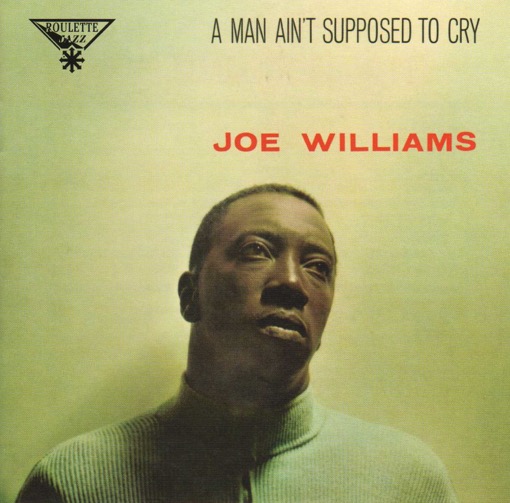
THE MOST elegant of blues shouters became the suavest of crooners in 1957, when Joe Williams recorded A Man Ain’t Supposed to Cry, the first in his series of sugar-spun makeout albums with strings. For three years, audiences had known the Georgia-born singer as Count Basie’s “number-one son,” a Basie discovery who had spurred the bandleader toward a new degree of fame. Nattily dressed in a tuxedo, Williams used his burnished high baritone to sock out swing tunes, R&B, and the occasional ballad. According to Duke Ellington, “his perfect enunciation of the words gave the blues a new dimension.”
Williams’s commercial possibilities were clear to Morris Levy, the mob-connected founder of Roulette, a label he founded in 1956. Levy had lured Sarah Vaughan away from Mercury (Dinah Washington would follow) and Williams from Verve; at Roulette all would find themselves swaddled in strings, singing love songs aimed at a wider public. For Williams, this was no sellout. As he told Barbara Gardner in Down Beat: “There is nothing wrong with singing a song the way it is written, with making a song say, ‘Please like me.’”
Former Basie arranger Jimmy Mundy gave the singer a lush but unobtrusive background; Williams sang with an open heart and no frills. The jazz police filed the expected charges – Metronome’s Bill Coss grumbled that the album’s “commercialism almost intrudes on your ear” – but Tony Brown of England’s Crescendo gave only praise: “The voice – warm and meaningful – is at peak form and he doesn’t overstate a single line.”
He never did. When Williams died at eighty on March 29, 1999, Cassandra Wilson told the New York Times: “He reminds me of autumn. His voice is bronze and burnt sienna and golden, warm and enveloping, just an incredible instrument. It’s a life’s work to create that kind of sound.”